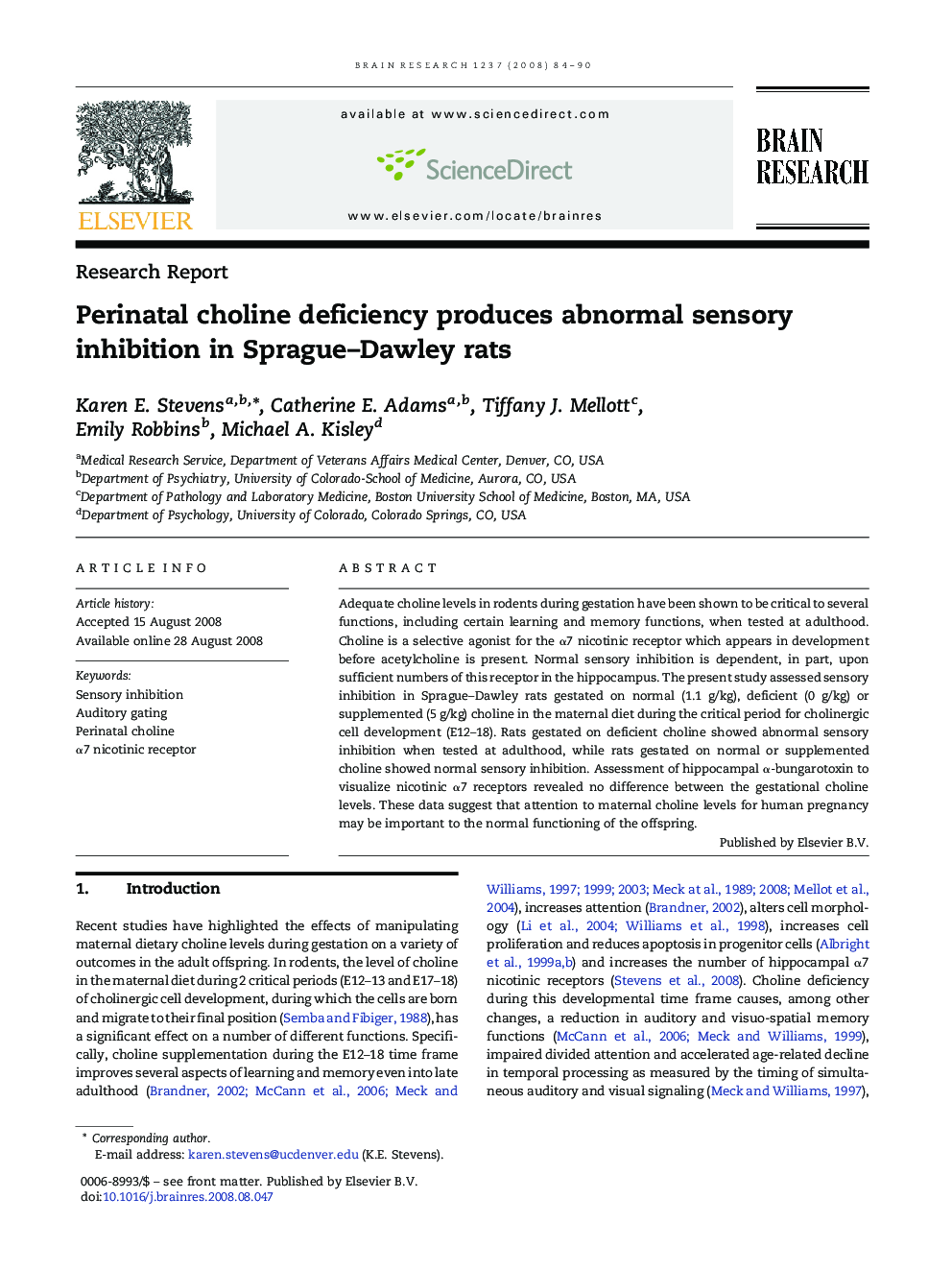| Article ID | Journal | Published Year | Pages | File Type |
|---|---|---|---|---|
| 4329258 | Brain Research | 2008 | 7 Pages |
Adequate choline levels in rodents during gestation have been shown to be critical to several functions, including certain learning and memory functions, when tested at adulthood. Choline is a selective agonist for the α7 nicotinic receptor which appears in development before acetylcholine is present. Normal sensory inhibition is dependent, in part, upon sufficient numbers of this receptor in the hippocampus. The present study assessed sensory inhibition in Sprague–Dawley rats gestated on normal (1.1 g/kg), deficient (0 g/kg) or supplemented (5 g/kg) choline in the maternal diet during the critical period for cholinergic cell development (E12–18). Rats gestated on deficient choline showed abnormal sensory inhibition when tested at adulthood, while rats gestated on normal or supplemented choline showed normal sensory inhibition. Assessment of hippocampal α-bungarotoxin to visualize nicotinic α7 receptors revealed no difference between the gestational choline levels. These data suggest that attention to maternal choline levels for human pregnancy may be important to the normal functioning of the offspring.
